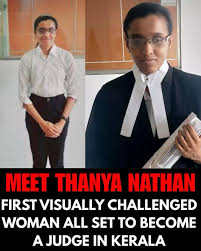@JUDGMENTTAG-ORDER
F.M. Ibrahim Kalifulla, J.@mdashThis writ petition has been preferred by the Assessee, challenging the order of the second Respondent/Tribunal dated 06.03.2003 passed in C.T.A. No. 245/2002, refusing to condone the delay of 490 days in filing the appeal before the first Respondent.
2. Brief facts which are required to be stated are:
(a)The assessment year pertains to 1995-96. The assessment was under the Central Sales Tax Act. The writ Petitioner claimed exemption u/s 6A of the Act for its stock transfer effected, based on form "F" produced by it. Assessment was concluded by order dated 30.06.1999. Subsequently, there was an inspection made by the officers of the first Respondent and based on the accounts and records recovered from the Petitioner, notice was duly served on the Petitioner by registered post with acknowledgment due on 31.03.2000. The Petitioner failed to file any objections to the proposal to assess the turn over in a sum of Rs. 1,88,95,000/-. Apart from that, penalty was proposed at Rs. 5,09,850/- under the Act. The notice was received by one Thiru.S.S. Sankara Subbiah, a staff working in the administrative office of the Petitioner Company. After the service of notice, final order of revised assessment came to be made on 22.06.2000, assessing the tax liability at Rs. 3,39,900/- and penalty of Rs. 5,09,850/-.
(b)The Petitioner filed an appeal before the Appellate Assistant Commissioner with a delay of 490 days, challenging the order dated 27.06.2000. The Appellate Assistant Commissioner, by a lengthy order dated 28.02.2002, rejected the said petition for condonation. Challenging the same, the Petitioner approached the second Respondent Tribunal and the Tribunal having dismissed the appeal in C.T.A. No. 246/2002 by its order dated 06.03.2003, the Petitioner has now come forward with this writ petition.
3. We heard Mr. Inbarajan, learned Counsel for the Petitioner and Mr. Haja Nazirudeen, learned Special Government Pleader (Taxes) for the Respondents.
4. The learned Counsel for the Petitioner, by referring to Section 31 of the TNGST Act, which provides for the filing of an appeal before the Appellate Assistant Commissioner, contended that an appeal could be preferred within a period of thirty days from the date on which the order was served on the Assessee, in the manner prescribed under Rule 52(1), where several modes of service of notice of the order has been provided for. Under Rule 52(1)(a), it is specifically stipulated that such service of notice should be by giving or tendering it to such dealer of his manager or agent or a legal practitioner appointed to represent him or Assessee''s authorized representative. While other modes of service by serving it on any adult member of the family or by registered post or by fixing it in some conspicuous place at his last known place of business or residence.
5. According to the learned Counsel, such options can be resorted to only if the service could not be effected by tendering it on the Assessee in person. The learned Counsel, therefore, contended that since in the case on hand, the only mode resorted to was by sending notice by RPAD, though the said notice was stated to have been duly served in the office of the Petitioner, the failure on the part of the Respondents to have attempted to serve notice in person on the Assessee should be taken to mean that there was no effective service on the Petitioner. The learned Counsel would, therefore, contend that if there was no effective service, the filing of the appeal by the Petitioner after he came to know about the passing of the revised order of assessment, based on the recovery proceedings taken, should be the starting point of limitation for the purpose of filing the appeal before the Appellate Assistant Commissioner.
6. The learned Counsel then contended that even if we were to hold that Rule 52(1) provides for alternative modes of service of notice, insofar as levy of penalty is concerned, in exercise of powers under Article 226 of the Constitution, when the Assessing Authority invoked Section 12(3)(b) of the TNGST Act for imposing penalty while exercising its revisional jurisdiction u/s 16 of the Act, the levy of such penalty should be interfered with.
7. The learned Counsel, however, fairly brought to our notice a judgment of the Division Bench, reported in
8. The learned Special Government Pleader (Taxes) brought to our notice the decision of the Division Bench in 2003 131 STC 529 Quantas Engineers and Promoters (P) Ltd. v. Tamil Nadu Taxation Special Tribunal and Ors., wherein the Division Bench deprecated the claim for invocation of writ jurisdiction to get over the bar of limitation.
9. Having heard the learned Counsel for the respective parties and having perused Section 31 and Rule 52(1) of the TNGST Act and the rules made there under, we are not inclined to accede to the submissions of the learned Counsel for the Petitioner that only after resorting to the service of notice in person, service through registered post was permissible. A reading of Rule 52(1), makes it clear that the set of expressions in the first part of Rule 52(1) viz., "may be effected in any of the following ways" makes it amply clear that the service of notice on a dealer can be resorted to by any one of the modes specified in Rule 52(1)(a)(b)(c). Only sub Rule 52(1)(d) specifies that if none of the modes provided under Rule 52(1)(a)(b)(c) is practicable, the alternative mode of affixing notice in some conspicuous place at the last known business or residence can be resorted to. As far as the modes of service specified in Rule 52(1)(a)(b)(c) are concerned, it is for the authorities concerned to resort to anyone of the modes specified therein.
10. In fact, the decision reported in 133 STC 80 State of Tamil Nadu v. Blue Mountain Hosieries fully supports the above said view, wherein the earlier decision of this Court in Sanjeevi Naidu''s v. Deputy Commercial Tax Officer (1973) 31 STC 377 (Mad.) has been referred to, wherein it has been held as under:
The modes of service referred to in Clauses (a) to (c) are only alternative and not cumulative and, therefore, it cannot be said that all the above three modes have to be exhausted before the service by affixture can be effected under Clause (d). It is not in dispute that one of the modes of service contemplated under Clause (c) is service of notice by registered post, and such service has been found to be ineffective in this case. Therefore, the assessing authority was justified in proceeding to serve the assessment order by affixing it in the Petitioner''s place of business under Rule 52(d).
11. Therefore, we have no hesitation to hold that the mode of service resorted to by the Respondents viz., by registered post acknowledgment due to serve the order of the revised assessment on the Petitioner was perfectly justified. Insofar as the stand of the Petitioner that even such service by registered post acknowledgment was not properly made, the same was extensively considered both by the Appellate Assistant Commissioner as well as the second Respondent Tribunal and they found that there was no substance in the said stand of the Petitioner.
12. It was lastly contended by the learned Counsel for the Petitioner that while the notice for revision was issued u/s 16 of the Act, the penalty came to be imposed by invoking Section 12(3)(b) of the Act which ought not to have been made. The said contention cannot also be examined, inasmuch as when the very right of appeal of the Appellant was denied on the ground of limitation, there is no scope to examine the correctness of the said order on merits. The contention of the learned Counsel for the Petitioner in stating that the present challenge having been made by invoking the writ jurisdiction of this Court by Article 226, this Court could examine the same, cannot also be permitted. In this context it will be appropriate to refer to the Division Bench decision relied on by the learned Special Government Pleader in 2003 131 STC 529 Quantas Engineers and Promoters (P) Ltd. v. Tamil Nadu Taxation Special Tribunal and Ors.), wherein it was made clear that the remedy under Article 226 cannot be used as a magic wand to set at naught the period of limitation. We fully agree with the said statement of law made by the Division Bench of this Court and therefore, on that ground itself, the submission of the learned Counsel cannot be entertained. Moreover, it is well settled principle of law that mentioning of a wrong provision or non mentioning of any provision of law would by itself not be sufficient to take away the jurisdiction of a Court, if it is otherwise vested in it in law. u/s 16(2), there is every power in the Assessing Authority to levy penalty where it is satisfied that escape from the assessment was due to the wilful non-disclosure of assessable turnover by the dealer. What has been provided u/s 12(3)(b) has also been provided u/s 16(2) of the Act. In such circumstances, mere mentioning of Section 12(3)(b) by itself cannot be held to dis-entitle the authority to levy penalty, as suggested by the learned Counsel for the Petitioner.
13. Looked at from any angle, we do not find any merits in the writ petition. The writ petition fails and the same is dismissed. Consequently, WPMP No. 24919/2003 is also dismissed. No costs.

